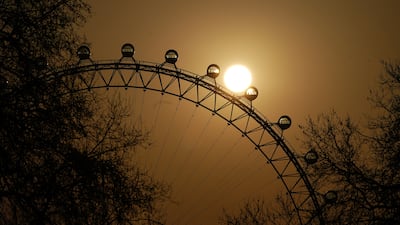
'Don't let the sun go down on me' is the battle cry of campaigners for daylight saving hours. PA
'Don't let the sun go down on me' is the battle cry of campaigners for daylight saving hours. PA
Spring forward: UK shifts to summer time despite global campaigns against clock changes
Debate over merits of daylight saving hours is centuries old and shows little sign of abating


